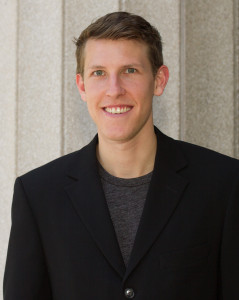 By Austen Paulsen for the Center for Law & Biomedical Sciences blog.
By Austen Paulsen for the Center for Law & Biomedical Sciences blog.
The issue in this case is whether the Federal Circuit may set aside findings of fact made by a district court and review its claim construction de novo or if the Federal Circuit is required to grant deference to the district court’s factual findings as required by Federal Rule of Civil Procedure 52(a)(6). Federal Rule of Civil Procedure 52(a)(6) provides that “findings of fact, whether based on oral or other evidence, must not be set aside unless clearly erroneous, and the reviewing court must give due regard to the trial court’s opportunity to judge the witnesses’ credibility.” There is often some overlap between questions of fact and questions of law and courts struggle to define bright-line rules governing which category an issue falls into. In Markman, the Supreme Court held that although claim construction is a mixed question of law and fact, claim construction should be considered as a question of law to ensure uniformity in the patent system. Accordingly, the Federal Circuit may “review claim construction de novo on appeal including any allegedly fact-based questions relating to claim construction.”
The appellant Teva Pharmaceuticals USA, Inc. (“Teva”) is an international pharmaceutical company that owns a patent for Copaxone, a top-selling multiple sclerosis drug. The appellee Sandoz, Inc. (“Sandoz”) is a drug manufacturer that filed an application with the FDA to produce a generic version of Copaxone. Teva alleges that Sandoz’s generic version of Copaxone infringes upon their drug. Copaxone argues that Teva’s patents are invalid and unenforceable.
The United States District Court for the Southern District of New York granted summary judgment to Teva, finding that Sandoz had infringed upon all of the claims asserted by Teva. The court further held that Teva’s patents were not invalid for inequitable conduct, lack of enablement, indefiniteness, or obviousness.
The Federal Circuit affirmed in part and reversed in part. The majority used a de novo standard of review in determining whether the claims were indefinite in light of the recent Supreme Court determination, in Nautilus, Inc. v. Biosig Instruments, Inc., which held that a patent is invalid for indefiniteness if its claims, in light of the specification and the prosecution history, fail to inform persons having ordinary skill in the art of the scope of the invention with reasonable certainty. Considering this new standard, the Federal Circuit separated the Teva claims into two groups and found that the Group I claims were invalid for indefiniteness and the Group II claims were not invalid for indefiniteness. Several measurements may be used to determine a molecular weight; because Teva failed to state which measurement was used to determine the molecular weights of Group I claims, Judge Moore found that the Group I claims contained an ambiguity. The Federal Circuit further held that the claims were infringed and that Sandoz failed to prove that the claims were invalid for being obvious or not enabled.
Teva filed for a writ of certiorari on January 16, 2014. The Court granted the petition on March 31, 2014. Oral argument took place on October 15, 2014. From the oral arguments, the Court appears initially divided. Justice Breyer pursued a line of questioning suggesting that deference should be given to district court findings of fact for claim construction because the lower court heard testimony from the experts. On the other hand, Justice Alito expressed fears that forcing the Federal Circuit to grant deference to district courts could overly complicate the patent system. The Supreme Court’s opinion in this case could result in considerable implications for patent litigants if the Court overturns the long-standing practice of the Federal Circuit reviewing claim construction de novo.
Austen is currently a second year law student at the University of Utah S.J. Quinney College of Law and a Center for Medical Innovation Fellow. Austen graduated from the University of Utah with a B.S. in Chemical Engineering and is planning on pursuing a career in intellectual property law. He is an avid mountain biker, snowboarder, runner, weight lifter and lover of all things outdoors.
